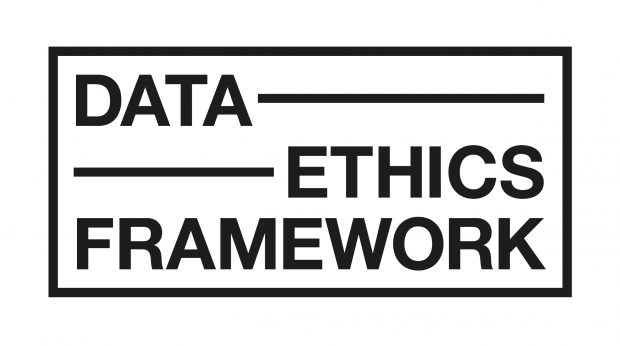
The Data Ethics Framework is designed to help anyone working with data in the public sector to consider the ethical considerations that may arise from their projects, address them, and responsibly innovate.
It was first published in 2016 and was reviewed again in 2018. The latest version, published this month, has been updated following extensive consultation with users of the Framework.
The Framework guides appropriate and responsible data use by those working with data, including data practitioners, policymakers, operational staff, and those helping produce data-informed insight.
Multidisciplinary teams should work through the Framework together throughout the process of planning, implementing, and evaluating a new project. Each part of the Framework is designed to be regularly revisited throughout your project, especially when any changes are made to your data collection, storage, analysis or sharing processes.
Updating the Framework
The Data Ethics team initially engaged with government data practitioners to understand their current use of the Framework and barriers to uptake through a survey. The initial findings indicated that there was little awareness of the Data Ethics Framework across government.
Following the survey, we set up a series of workshops with stakeholders from the wider public sector, academia, civil society, and the industry. In each of the day-long workshops, participants were asked to apply the Data Ethics Framework to a fictional policy scenario to identify areas for improvement in practice.
The workshops provided space for identifying specific strengths and weaknesses of each principle of the Framework and asked for feedback on the relevance, design, and potential options of mandating the Framework.
The main takeaways from the workshops included
- introducing some overarching principles that apply to every stage of the work with data
- reordering the principles to reflect the project process
- defining some of the terms in the Framework
Following each session, workshop participants were invited to submit any further feedback through anonymous forms that were processed by the team. Data collected through the workshops and surveys was anonymised and codified.
The team worked with social researchers to categorise the findings into common themes (for example: ‘user focus’, ‘legal requirements’, ‘accountability’, ‘data quality limitations’) and evaluate what changes needed to be made in the corresponding sections of the Framework and in its structure in general.
The updated content was drafted based on the data analysis and tested through 5 focus groups with data scientists and data policy officials from across the government. This phase of user-testing identified the need to amend the order of some of the specific actions and to provide ready actions for each of the overarching principles.
What’s changed
The latest version of the Data Ethics Framework consists of 3 overarching principles (transparency, accountability, fairness) and 5 specific actions that follow the project process and allow the user to take adequate steps to improve ethical standards of their data work.
We have also added a simple self-scoring system to help summarise the ethical consideration of the project. If the self-assessment process flags any potential issues, we encourage the project leads to amend their projects accordingly and consult more widely with organisational ethics boards or officers.
On behalf of the team working on the refresh of the Framework, I would like to thank everyone who attended the workshops, focus groups, and responded to the survey for their time and dedication to help us with this process. I would also like to thank Professor Charles Raab for his thoughtful and extensive feedback on the draft of the refreshed Framework.
Get in touch
Following the refresh process, we will be building a public sector data ethics community, working on developing data ethics skills training, and gathering case studies and impact stories. Read the Framework and download the template for your ethical assessment.
Please get in touch with us if you can share case studies of how you’ve used the Framework in your project, if you have ideas on how to further embed and promote the Framework in your organisation, or if you’re interested in working with us to develop data ethics training.
